If there’s one type of game that has struggled to find its footing in the modern era, it’s been the Japanese RPG. Looking at a console generation that has seen a major RPG from the creator of Final Fantasy struggle to achieve a Western release, and one where the once-mighty RPG giant Square-Enix has become more known for Tomb Raider than for their RPG output, it’s without a doubt been an interesting ride for the genre.
In recent years it’s been the games that have deviated most from the typical format, such as the Persona series and Dark Souls, that have garnered the most mainstream appeal outside of your usual Final Fantasy releases. As the seventh console generation wound to a close, however, we’ve also seen the smallest signs of a shift back. With more traditional Japanese RPGs like the 3DS’ Bravely Default being warmly received worldwide, it’s shown that developers can look to the past to find inspiration for the future.
And if they look back at Skies of Arcadia, there’s plenty they can learn from the Dreamcast’s biggest traditional RPG.
With darker and more serious RPGs topping the charts at that time, it was admirable that SEGA made no effort to hide Skies of Arcadia’s quirkiness. Its characters were bright and cheerful, designed with incredibly “animated” facial expressions and dialogue. Even in the more traditional Japanese RPGs we occasionally see today, this isn’t the case. But Skies of Arcadia was not only unquestionably Japanese, but it embraced an earlier RPG era where funny characters and cartoonish interactions between them were the norm. The game certainly did get serious at times, but it never got so serious as to truly lose its lighthearted flavor.
Skies of Arcadia was not only unquestionably Japanese, but it embraced an earlier RPG era where funny characters and cartoonish interactions between them were the norm.
If traditional Japanese RPGs are going to attempt to make a comeback, then it’s crucial that they embrace what they are and make no apologies for it. You can’t design a turn-based RPG featuring characters drawn with Western-inspired designs and a dumbed down version of a Western RPG quest system and expect an automatic worldwide hit. A game like Persona 4 is so well-liked on both sides of the world in part because it’s so sure of what it is and what it wants to be and, as a result, its developers are able to craft the best game they can without attempting to appease a wider audience.
Skies of Arcadia was much the same way. Its boxart wasn’t Western in the slightest, its characters were quirky, its world bright. The voice acting was minimal, and the battle system of course rigidly turn-based. It was in these ways that the game was incredibly traditional in its design and execution, but where it pushed boundaries, and where it really took things forward, was in the scope of its world.
At its heart, Skies of Arcadia was about exploration and adventure, and its world was massive for its time. It didn’t feature an out of scale overworld like many PS1 RPGs did; instead the graphics while sailing through the skies were just as gorgeous as they were when wandering through town. And it was done with such sheer scope that it made comparisons to the size of games like Ocarina of Time almost laughable. It was a world just begging to be explored, but the plot didn’t suffer as a result. In true Japanese RPG fashion, the story still had a big prominence and the world was “unlocked” in a linear fashion, but that was what it was, and the game was all the better for it.
It was a world just begging to be explored, but the plot didn’t suffer as a result.
The world was there for the taking, with no shortage of quests to undertake and things to do. But they weren’t forced down your throat like they are in so many RPGs today, and they didn’t keep you from the main adventure. What makes the traditional Japanese RPG so compelling to so many people is its emphasis on storyline, and even in age where a focus on exploration is becoming more and more of a requirement, Skies of Arcadia is proof that it’s not only possible to do both, but that it doesn’t even have to be a challenge. A compelling world will invite exploration, while gamers wanting to continue right to the next cutscene can do that as well, and Skies of Arcadia did a great job at allowing this.
All this said, it’s also important that people not forget that the Japanese RPG, like any type of game, needs to evolve to remain relevant. Skies of Arcadia’s combat system was incredibly slow, and without a doubt this was one area where the game could have used an upgrade, as was the case with its sometimes-excessive amount of random battles. I also don’t want to say that it needs to be some sort of requirement that all future Japanese RPGs be cheerful and need to feel “old school.”
What I’m instead trying to say is that games should just be allowed to be what they are. A high quality experience like Skies of Arcadia is the way it is because nobody inside SEGA was telling the developers that they had to do things a certain way to fit in with how things were in the industry at the time.
What I’m instead trying to say is that games should just be allowed to be what they are.
Japanese RPGs can learn from Skies of Arcadia not only in that aspect, but they can also learn that it is possible to innovate and truly push the genre forward, as Skies did with its exploration aspect, without sacrificing many of the things that people play these types of games for, which is a focus on story and characters and its “Japanese” feel.
With Skies of Arcadia, SEGA embraced the past in many ways, but they also developed a game that didn’t feel like a throwback; it felt like a major step forward for the traditional Japanese RPG. And it’s this mentality that can hopefully be rediscovered by the developers of these types of games and can hopefully be used to once again bring us Japanese RPGs that feel, like they once did, like the epic adventures that they once were.

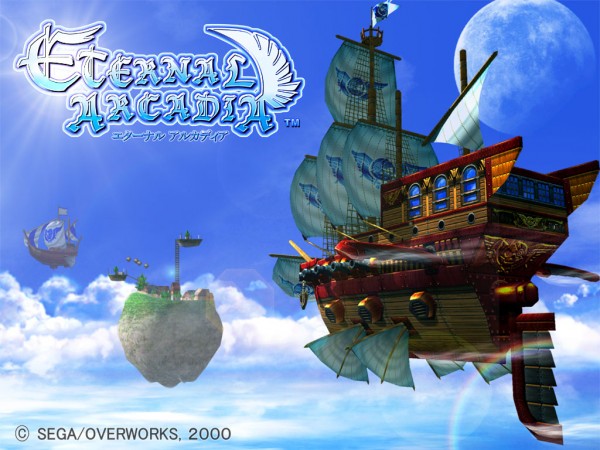
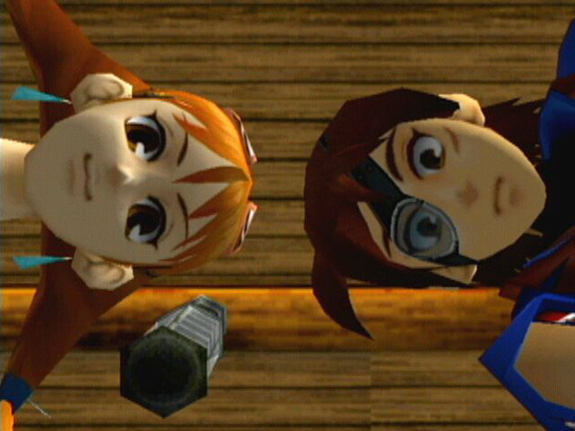
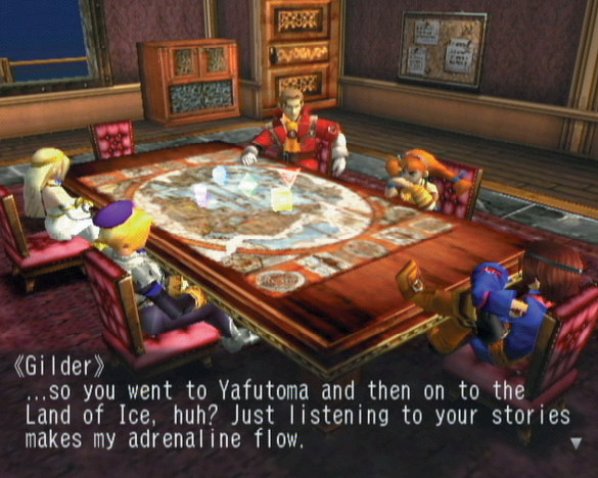
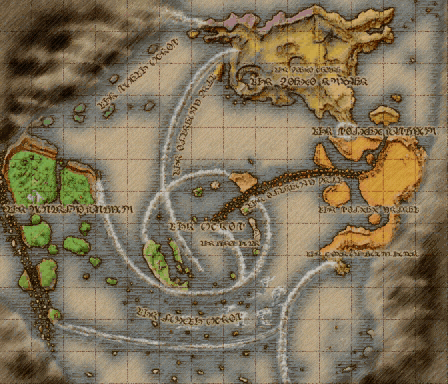
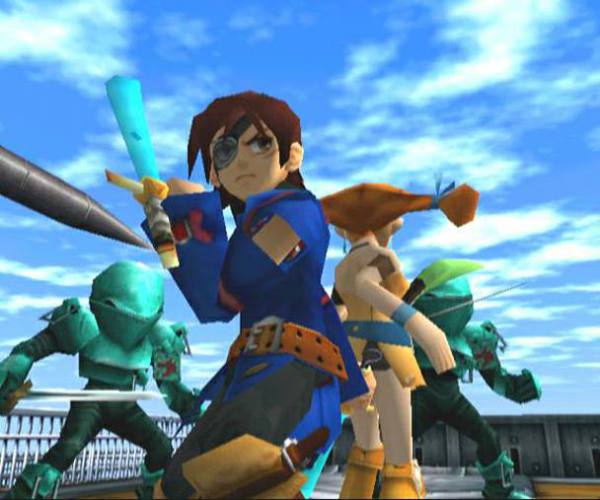

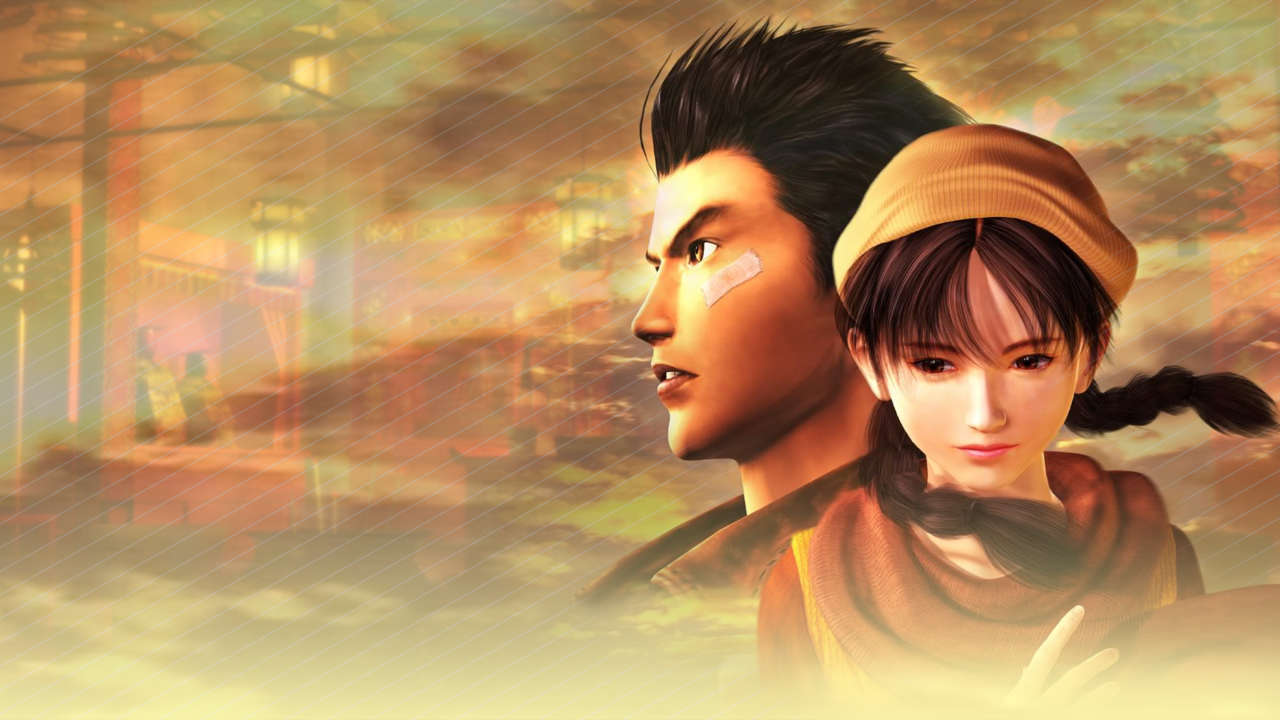
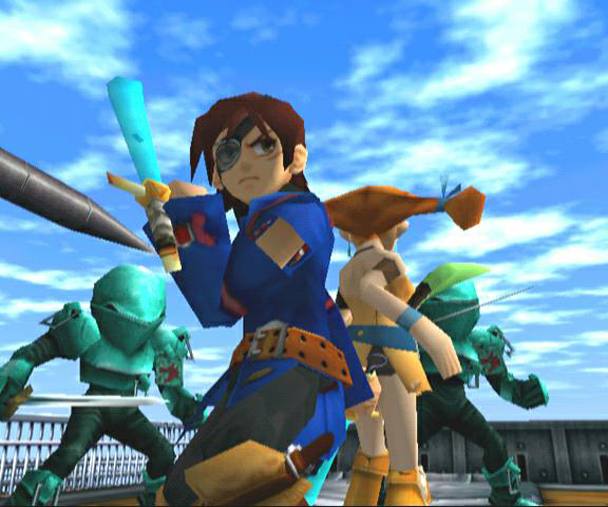
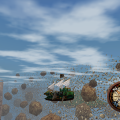
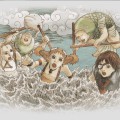
What I didn’t like about dungeon or town exploration in Arcadia was that only Vyse would be the visible character.
Graphically Grandia 2 is inferior and the world may not be as animated but it truly felt like an evolution of classic J-RPG’s where as Arcadia felt like it was trying to break out of the norm.
I haven’t played any of the recent action RPG’s so I don’t know how the battle system works but I personally feel Grandia 2 has the best battle system I have ever experienced.
@cube_b3, eh, lots of games only have one character visible and they don’t really suffer for it. Like Golden Sun games on the GBA or the majority of Tales games. Perhaps ostensibly it may pose a problem for certain field designs (narrow areas?) but Xenoblade mostly handled it well. Either way it doesn’t matter much to me.
I really like Skies of Arcadia. I feel like it was a mostly conventional RPG with various moments of subversion to keep the experience fresh. Regarding the plot, you could refer to Ramirez being the last boss instead of Galcian, and the fact that Ramirez steals your Moon Stones after you obtain the Yellow Moon Stone, or the mostly non-linear way you fight Galcian’s admirals. With the battle system, I agree it was mostly just serviceable but the Spirit Points gave it another layer especially when using Super Moves or in Ship Battles (if you don’t have magic boxes or w/e).
It’s hard to say though, what would make for a distinctly Japanese game that is also good. I mean I just read recently that Phantasy Star Online didn’t even start as a PS game and actually took elements from Diablo. and besides, lots of JRPG’s embrace light hearted characters with funny dialogue and not necessarily deep characterization, that’s what Bravely Default and the Tales series’ skits are like.
I do think that there are some things that modern JRPG’s are getting right, not to say the author disagrees. A couple of recent features I have noticed that I appreciate are:
in-game difficulty adjusters, as in Bravely Default or Tales of Xillia. I adjusted the difficulty to a higher level once I was midway through the game and kept it that way, so that was nice.
objective reminders, as in Xenoblade, tales of xillia, Bravely Default, lots of games. If you are the type of person to leave a game and then come back to it some time later, this can be helpful. Because if you’re playing Golden Sun or Golden Sun: The Lost Age, if you forgot what you’re doing you’re SOL
Generally I feel like the company concern about JRPG’s not being saleable is overblown. if we’re concerned with roping in the “modern gamer” some problems are kinda like this IMO
-there’s more financial return in forms of gaming that embrace more of a sense of instant gratification (variety of mobile games). beyond Tales games, which feature mostly accessible battle system that is very flashy it’s hard to make the case for protracted experiences for some people.
-JRPG’s don’t naturally incorporate internet connectivity bells and whistles all that easy, beyond DLC costumes and such. there’s no social element to incorporate with JRPG’s as we know them. Unless you count games like God Eater 2 with online multiplayer, but Skies is very clearly not that
-I’ve read that some of the same audience that grew up playing the RPG’s Of Old (PSX and before, maybe) is now disinclined for making the same investment since their lives have more obligations
Maybe turn-based RPG’s are just going to have a tougher time nowadays. I think Atelier gets away with it because they reuse assets and reuse an engine from Koei Tecmo. Persona has a focus on the social elements to accompany the (what I understand to be) fairly accessible battle system.
there are still a bunch of fairly consistent JRPG franchises out there that have presence outside of Japan, like the NIS games.
Clearly your entire post is not a response to my comment.
Honestly I’ve not played a new RPG since Dreamcast. I wanted to play Tales but I never found the time… So I really don’t know what to say… I can only compare it to Grandia 2 and I think aside from the fact that Grandia 2 was a low budget game I think it is a more natural evolution.
I never played PSO, I didn’t have internet access back then and the game was clearly not Phantasy Star. I played Phantasy Star 4, it is my favorite RPG of all time and I could not see any connection between the preceeding parts and PSO.
It is funny cause I learned half a decade later that Skies of Arcadia is more Phantasy Star than PSO. With the exception of Yuji Naka none of the people who made the original games were involved in PSO and Nake only programmed 1 or 2, he was never involved in an executive capacity with the MegaDrive series.
I would not describe myself as an RPG fan, but I loved Skies of Arcadia. I remember popping in that Official Dreamcast Magazine demo disc and immediately being drawn to the positive vibes of this bright, expansive, swashbuckling world and its characters. The full game more than delivered on that promise, providing hours and hours of fun.
The only other JRPG I’ve been drawn to in the same way is Persona 4 Golden. So as you’d expect, I think your observations are spot on!
Totally agree with the article, we miss bright positive adventure-spirit turn-based JRPGs these days so much…
Another one brilliant example of such kind of games is Thousand Arms.